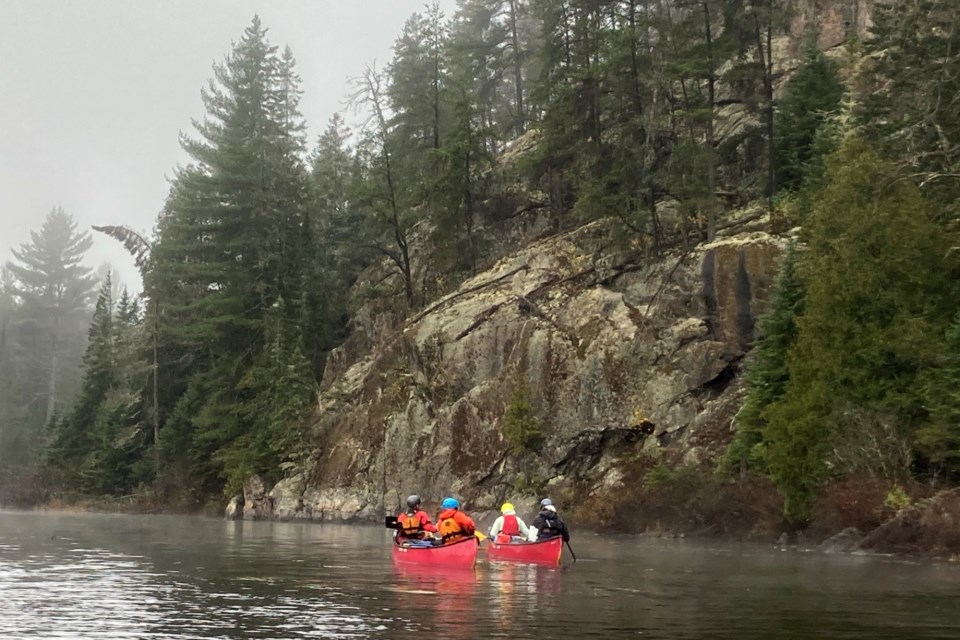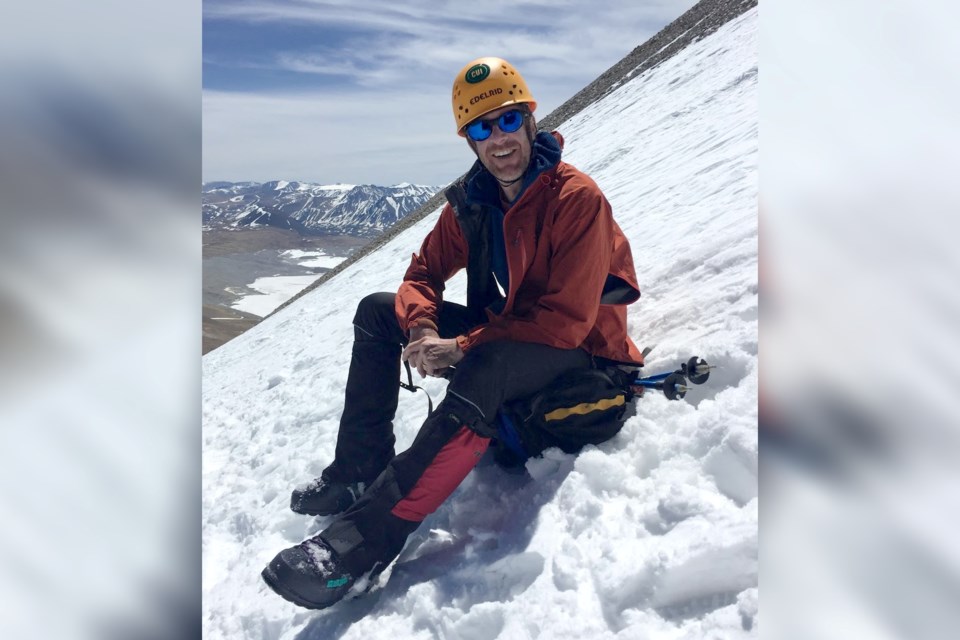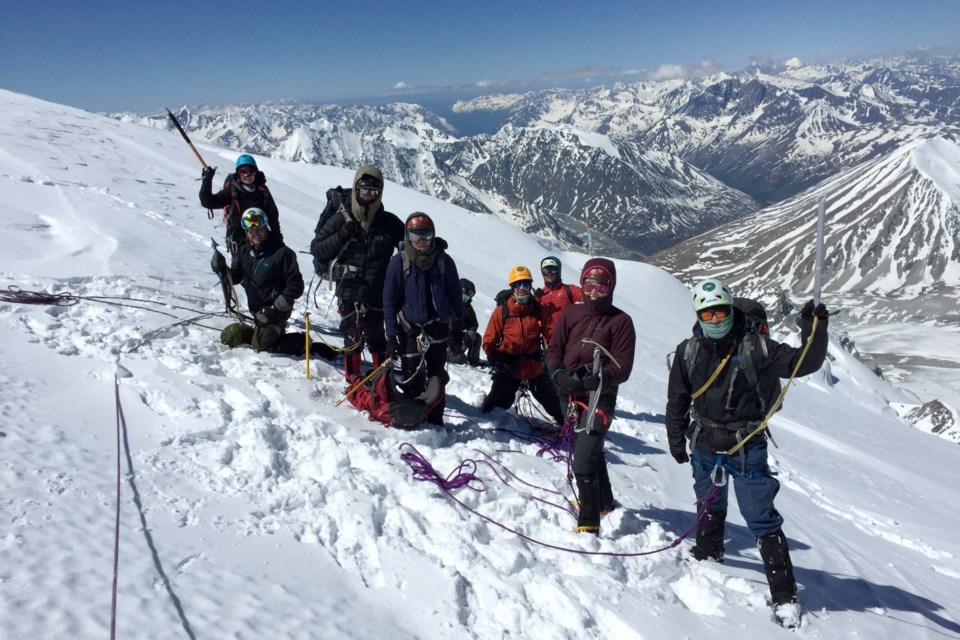There are many reasons people pursue post-secondary education. Some people just want to learn marketable skills. Others head to university to learn as much about themselves as anything else.
Since the mid-1980s, Laurentian University has offered a program that falls somewhere in between. The Outdoor Adventure Leadership (OAL) program is a three-year, on-campus program that teaches exactly what the name suggests — how to live a life of adventure in the great outdoors.
A university program that offers training in canoe tripping, river rescue, sea kayaking, rock climbing, wilderness emergency first aid and more? It’s something a little out of the ordinary.
Sudbury.com spoke with Jim Little, the academic advisor and master lecturer for the Outdoor Adventure Leadership program, about how a Burlington native found himself teaching outdoor adventure in Northern Ontario, and about what the program entails.
“It’s a very Sudbury / Northern Ontario program,” Little said when we spoke to him. Which makes sense, he said, considering that “compared to other universities, Sudbury is really close to wild spaces.”
From 2001-2006, Little was a part-time instructor in the program. He’s been a full-time instructor since 2006.
Little said he didn’t grow up as an outdoorsy guy.
“Burlington isn’t known for its outdoor spaces,” Little laughed.
But late in his high school career, his father asked him if he wanted to start doing some canoe tripping. This started a love affair with the outdoors that continues to this day. Little became a Junior Ranger and after high school got a job up in the Fort Frances area of Northwestern Ontario.
“We went deep into the bush helping clean up portage routes for 10 to 12 days at a time — I loved it, it was great,” Little said.
Still, he became an engineer and practiced in southern Ontario for a time. His wife, Jenny Martindale (of Wild Women Expeditions), is from this area and when she decided to switch careers, the couple came north in the late 1990s / early 2000s to open a four-season guiding company.
That guiding work led to Little becoming an instructor in the Outdoor Adventure Leadership program, which eventually led to his full-time gig at the university.

But what is the Outdoor Adventure Leadership program exactly? This is what the course description has to say.
“This program is designed to assist individuals in becoming competent leaders in the outdoors. Students will develop sound theoretical knowledge in physical and health education and outdoor adventure leadership. Students have a choice to obtain a significant number of nationally recognized certifications,” the description on the Laurentian website reads.
“Students in the program will partake in some of the foremost and longest-running outdoor adventure leadership training in Canada and have the opportunity to gain valuable experiences and earn provincially or nationally recognized technical certifications in outdoor activities, such as canoe tripping, river rescue, sea kayaking, rock climbing and wilderness emergency first aid.”
Little describes it a bit differently.
“It’s skill development — to be comfortable in remote, austere, sometimes hostile environments,” he said.
It’s a bit like a wilderness survival course turned up to 11. Experiential and hands-on, the 15-25 students per class take part in small, shared group experiences that teach them all they need to know to survive in a variety of environments, be they desert, wilderness, riparian or mountainous.
Students learn everything from paddling to rock climbing to knot tying to fire starting. They gain the knowledge of how to travel through a location safely and they learn how to respect the environment they are in, Little said.
What’s more, as potential future wilderness guides, the students learn group dynamics, social awareness and group leadership skills, too.
“We teach them how to take people out (into the wilderness), do it safely and get them back,” Little said.
The course year is divided into three parts. In the fall, students learn wilderness travel skills, heading to the La Cloche Range for backpacking skills. In the winter, they learn winter travel skills on the backcountry trails around Dowling, which includes hot tent camping and building solo shelters. In the spring, the focus shifts to training, which including rock climbing, various types of rescue training, and whitewater.
The highlight of the course comes in the third year when the class embarks on an intensive field expedition to put the skills they’ve learned over the previous two years to work. Previous trips took students onto the wild rivers of remote Northern Ontario or Northern Quebec. Another took them to remote Western Mongolia, which doubled as a humanitarian mission to distribute eyewear and provide dental care.
The final expedition could involve hiking, canoeing, or riding horses or camels. This course-year’s upcoming excursion is to hike in Scotland’s Western Range.
“We put these students through the wringer — it’s challenging,” Little said.

But how useful is the OAL program to those who don’t plan on becoming wilderness guides? How useful is it in the grand scheme of things?
Very, Little said. Students of the program have gone on to become teachers, physicians, conservation officers, physiotherapists and more. Students learn much more than the hands-on skills they are taught, he said.
“The program teaches leadership dynamics, decision-making in unusual, high-risk environments, organizational skills — plus they learn to respect the environment and become environmental stewards themselves” — skills that are highly transferable to a variety of careers and situations, Little said.
If you’re curious about the Outdoor Adventure Leadership program at Laurentian, learn more here.
Mark Gentili is the editor of Sudbury.com. Bold is made possible by our Community Leaders Program.
